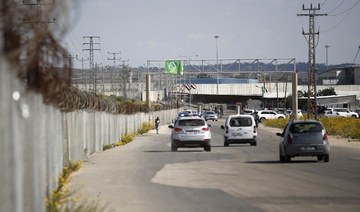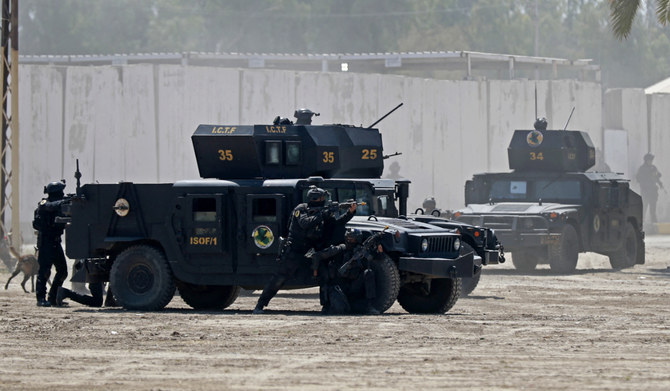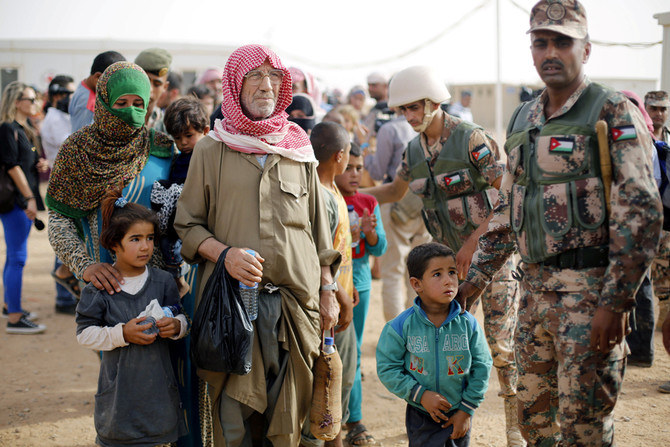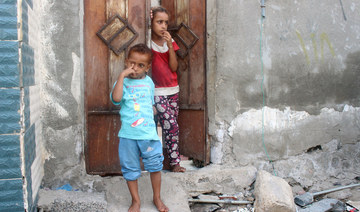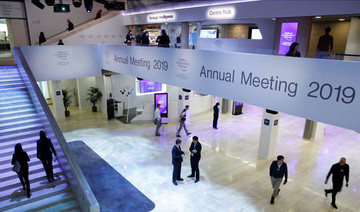RAMALLAH: Tayseer Barakat is like many Palestinians when asked about the upcoming Israeli elections. He doesn’t see much hope.
“We have learned from past experience that we are always the victims of Israeli elections, and it doesn’t seem there will be anything new,” said 58-year-old Barakat.
“It is more than likely there will be no meaningful changes, despite our hopes that there will be something new to change the situation,” he added as he walked with bags of groceries in Ramallah in the occupied West Bank.
Israel’s upcoming elections could have a direct effect on the Palestinians, but many have little interest in who wins, having lost hope its more than 50-year occupation will end no matter which party is in charge.
Some who do express concern say they are worried the campaign could lead to an uptick in incitement against Palestinians.
Israeli Prime Minister Benjamin Netanyahu’s current coalition is considered the most right-wing in Israel’s history and includes prominent members who rule out a Palestinian state while seeking aggressive settlement expansion. Some call for annexing large parts of the West Bank. Peace talks have been frozen since 2014.
The Ramallah-based Palestinian Authority has previously made a freeze on settlement building a prerequisite to re-entering peace talks. At the beginning of the election campaign it was widely assumed Netanyahu would win, despite being dogged by corruption allegations.
But former military chief Benny Gantz has emerged as a serious challenger, with polls showing his centrist Blue and White alliance slightly ahead of Netanyahu’s Likud.
Under those polls, Gantz would still fall far short of an outright majority and it is unclear whether he could assemble enough parties to form a coalition.
Early in the campaign, Gantz signalled openness to withdrawing settlers from parts of the West Bank. His alliance’s platform favors “separation from the Palestinians” but does not mention a two-state solution.
Palestinians initially saw encouraging signs, but Saleh Rafat, a member of the Palestine Liberation Organization’s executive committee, said he now believes the policies of Gantz and Netanyahu are similar.
“So far we haven’t seen fundamental differences between the right-wing and the center party,” he said.
“They are proposing a unified Jerusalem and to continue settlement and control over the Jordan Valley.”
Israel seized mainly Palestinian East Jerusalem in the 1967 Six-Day War and considers the entire city its capital. The Palestinians see the city’s eastern sector as the capital of their future state.
Israel occupied the West Bank, including parts of the Jordan Valley, in 1967.
More than 600,000 Israelis live in settlements in East Jerusalem and the West Bank, communities considered illegal under international law.
The international community sees them as one of the largest obstacles to peace, though Israel disputes this while pointing to Palestinian attacks and what it calls incitement to violence.
Hafed Barghouti, a former Palestinian newspaper editor, said relative calm in the West Bank has led to less attention to the conflict in Israeli elections.
Israeli politics have also shifted firmly to the right in recent years.
“There is no Israeli party talking about the Palestinian issue. Those that do talk, do so in the language of a brutal occupation,” he said.
“The right, center and left agree to ignore the Palestinian issue and focus more on the legalization of marijuana.”
Whether to legalize recreational-use marijuana has received unexpected attention in the Israeli campaign.




